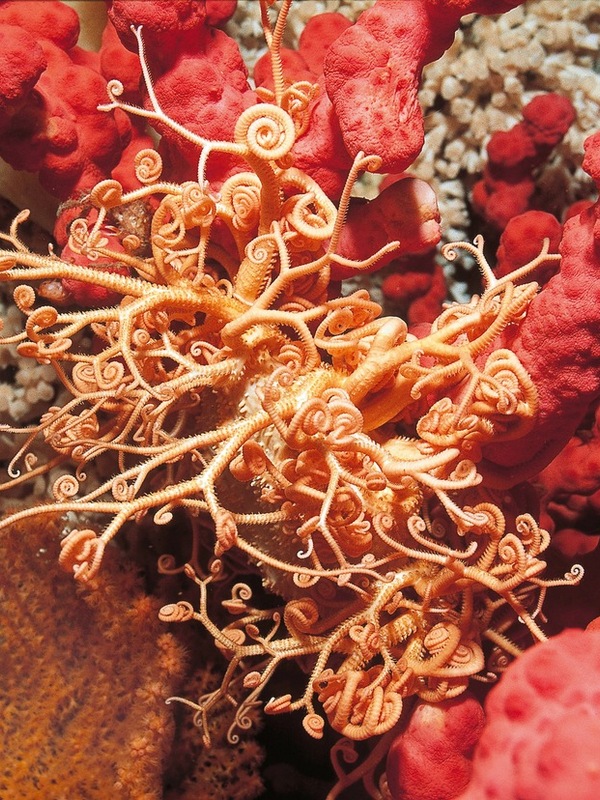
On Oceans Day: Deep Sea Mining Threatens the Oceans
On Oceans Day: Deep Sea Mining Threatens the Oceans. Hamburg – On the occasion of Ocean Day on June 8th, the World Wide Fund for Nature is urgently warning of the catastrophic environmental damage caused by the possible start of deep-sea mining. The annual meeting of the International Seabed Authority (ISA) in July is expected to decide how to handle a potential deep-sea mining application. However, there has so far been no scientifically based set of rules or evidence that mineral resources can be extracted in the deep sea without harming the marine environment.
Tim Packeiser, a marine conservation expert with WWF Germany, warns that allowing deep-sea mining would undermine the just-passed international agreements for nature conservation. “With the agreement to protect the high seas and the Global Convention on Nature, the international community has set milestones to protect our livelihoods in recent months. Above all, a third of the oceans will be placed under effective protection. It is absurd to contemplate simultaneously destroying vast areas of sensitive and untouched habitats. The deep sea remains largely unexplored.
At the previous spring meeting of the ISA, many countries had already spoken in favor of continuing to withhold approval of deep-sea mining applications if there were no regulations in place yet that would ensure effective protection of the marine environment. More and more global economic actors are also supporting the call for a moratorium. In addition to the BMW Group, Samsung SDI, Google, Volkswagen, Volvo Group, Philips, Scania, Renault Group, Patagonia and Breitling, as well as other financial institutions such as Triodos Bank and Storebrand, are increasingly joining.
“Awareness of the enormous risks of deep-sea mining is growing. More and more potential buyers of deep-sea raw materials are setting themselves up for avoidable devastation. Now is the time to put responsibility and foresight ahead of short-term economic interests” We don’t need to mine In the deep sea, we have to use resources more responsibly and promote a circular economy,” urges Tim Beiser.
The deep sea is home to a large number of delicate ecosystems and an extraordinary diversity of species. With each expedition, researchers discover new species there. In the Pacific Clarion-Clipperton region alone, which is the focus of deep-sea mining projects 5,000 previously unknown species described. In addition, the deep sea is the planet’s largest carbon sink and is essential to addressing the climate crisis.
The WWF calls on governments to act continuously in all relevant organizations and bodies for the health of the world’s oceans. These suffer greatly from overfishing, pollution, habitat destruction and the catastrophic effects of the climate crisis.
“Healthy seas are our life insurance. The international community should not gamble on protecting the deep sea, which is largely untouched. That’s why we need to stop deep-sea mining.”
background:
To date, commercial mining of mineral raw materials such as cobalt, lithium and nickel has not yet been permitted at thousands of meters of water depth. However, the Pacific island nation of Nauru launched the so-called “two-year rule” under the United Nations Convention on the Law of the Sea (UNCLOS) in 2021. This states that the ISA must issue regulations within two years if the country wants to engage in deep sea mining. Otherwise, the state of Nauru would likely begin deep-sea mining even without a set of rules. The annual meeting of the International Seabed Authority, which is responsible for drafting the rule book, will take place from 10 to 21 July 2023. In addition to Germany, Chile, Costa Rica, Ecuador, the Federated States of Micronesia, Fiji, France, New Zealand, Palau, Panama, Samoa and Spain , Vanuatu, and Finland already support moratoriums, custodial moratoriums, or bans. on commercial deep-sea mining activities.
Media communication:
WWF
Freya Dunker
Tel: +49 (0) 405 30200448
Email: [email protected]
Original content from: WWF World Wide Fund For Nature Transmitted by aktuell news

“Coffee trailblazer. Social media ninja. Unapologetic web guru. Friendly music fan. Alcohol fanatic.”
